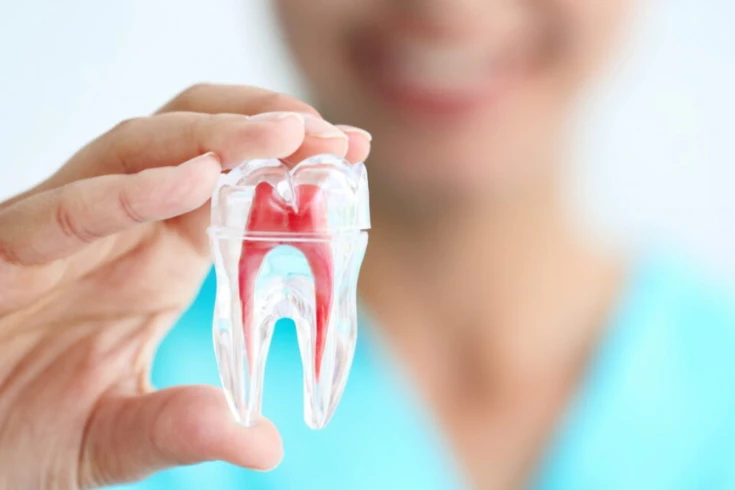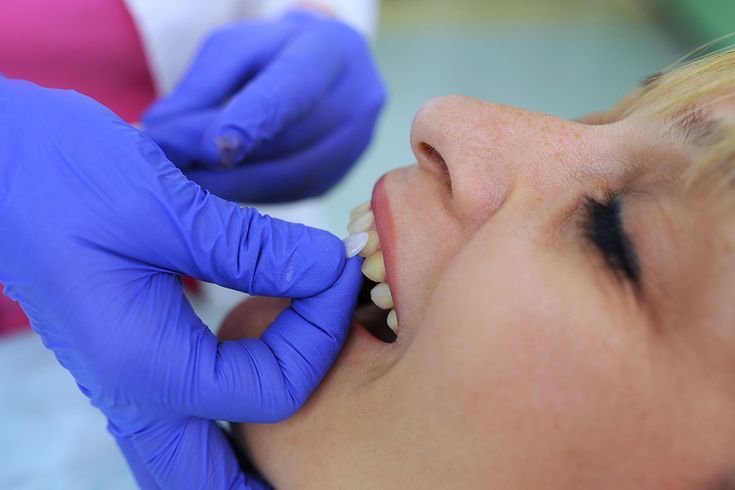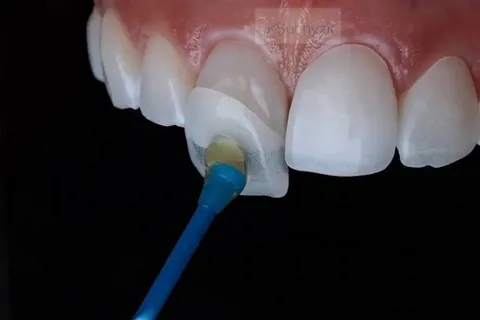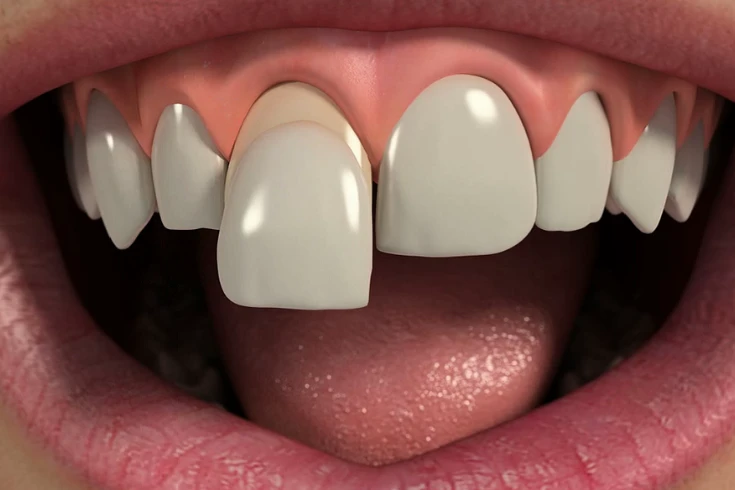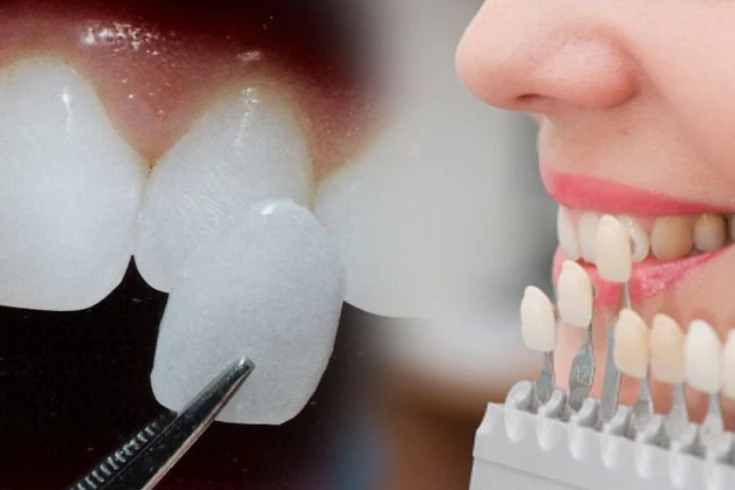What is a root canal?
A root canal therapy is a dental procedure used to treat infection or damage within the pulp (soft tissue inside the tooth). In root canal treatment the dentist removes the diseased pulp. The dentists clean and disinfect the inside of the tooth, and seal it in order to prevent further infection. Also, the treatment saves the natural tooth and avoids the need for extraction.
How long does a root canal take?
A root canal procedure typically takes about 30 to 90 minutes, depending on the complexity of the case. Here’s a breakdown of the factors that can affect the duration:
- Number of Canals: Teeth can have one to four or more canals. Molars, which have more canals, generally take longer (60 to 90 minutes) compared to front teeth (30 to 60 minutes).
- Condition of the Tooth: If there is an infection or severe damage, additional cleaning and preparation may extend the procedure time.
- Experience of the Dentist: An experienced endodontist may complete the procedure more quickly compared to a general dentist.
- Multiple Appointments: Sometimes, a root canal is done over two appointments, especially if an infection needs to be treated first. In such cases, the first visit may be shorter, with a longer final session for filling and sealing the tooth.
How much does a root canal cost?
The cost of a root canal heavily relies on factors such as the position of the tooth, geographical location, expertise of the dentist, and whether or not you have dental insurance. Here is a general breakdown of what you might expect to pay for a root canal in various situations:
| Type of root canal | Cost With Insurance | Cost Without Insurance |
| Front Tooth (Incisors or Canines) | Range from $300 to $700, depending on the plan. | Ranges from $700 to $1,100. |
| Premolars | Ranges from $800 to $1,300. | Costs can drop to about $400 to $800, depending on the coverage. |
| Molars | usually ranging from $1,000 to $1,500. | $500 to $1,000 based on your insurance plan. |
Other Considerations for the cost of root canal
Several factors affect the cost of the root canal. Some of the reasons or considerations that affect the price of root canal treatment or dentistry are:
- Complex Cases: When the tooth contains more roots or the root canal is more complex, the price goes up.
- Specialist vs. General Endodontists: Visiting a specialist, in this case, an endodontist is more expensive compared to visiting a general dentist.
- Geographic Location: The cost depends on the geographical location one is in. There is a higher price for areas viewed as urban compared to the areas that are rural.
- Other Costs: Other costs include X-rays, consultation fees, and a dental crown. This costs between $500 and $3,000.
How do you know if you need a root canal?
You may need a root canal if you have specific symptoms that show the damage, infection, or inflammation of the pulp- that is, the inner tissue of your tooth. Following are a few indications that show you may need a root canal:
Constant Tooth Pain
A persistent or sharp, constant toothache that does not leave may be a huge indicator. The pain may be felt deep inside your tooth, radiating into the jaw or affecting the surrounding teeth.
Sensitivity to Hot or Cold
Increased sensitivity to hot or cold foods and liquids, for a longer period, can be one of the warning signs that nerves are damaged. Pain or discomfort following exposure to hot or cold may remain for several minutes even after its source is removed.
Swelling and Tenderness in the Gums
Swelling, tenderness, or a pimple-like bump on the gums near the aching tooth can evidence infection. This bump, called a dental abscess, can sometimes ooze pus, which might have created a bad taste in your mouth.
Darkened Tooth
A darkening or graying of a tooth may indicate internal damage. Trauma or infection of the pulp can lead to the demise of the pulp, and the tooth will often darken.
Pain While Chewing or Touching the Tooth
If you feel pain or discomfort when applying pressure to the tooth, such as while chewing, this may be a sign of inflammation in the nerves surrounding the pulp of the tooth.
Cracked or Chipped Tooth
Due to a crack or chip inflicted on the tooth, nerves may be exposed; in this condition, the tooth is highly susceptible to any infection that may result. Sometimes this may involve a root canal to prevent or treat an infection .
Deep Decay or Large Cavity
If one neglects a cavity, for example, the resultant decay could pass deep within the tooth itself into the pulp. A root canal treatment will then be needed to clean up the debris and rescue the tooth.
How to avoid a root canal?
You can reduce the need of a root canal by practicing good oral hygiene. Hence, below are the steps you can follow to reduce the need of a root canal:
- Brush your teeth at least twice a day with fluoride toothpaste
- Floss daily to remove plaque and food particles from between your teeth
- Visit dentists on a regular basis for follow-up.
- Avoid excessive sugar consumption, which can contribute to tooth decay
- Wear a mouthguard if you play contact sports to protect your teeth from trauma.
Are root canals bad for you?
Root canals are generally safe and effective procedures for treating damaged or infected teeth, but some concerns about potential risks and side effects do exist. Here’s a breakdown of common concerns and whether they hold up:
Infection Risks
Although the infected tissue is removed during a root canal, the inside of the tooth is cleaned thoroughly, and there are even some cases when some bacteria can remain behind, leading to a secondary infection. Proper treatment and aftercare will reduce the risk.
Weakened Tooth Structure
A root canal can weaken a tooth’s structure, making it vulnerable against fracture. In several dentists’ opinion, the placing of a crown over the tooth usually will have to be recommended in order to counteract this.
Residual Pain and Discomfort
Some pain or sensitivity following treatment is normal but should lessen over time. Continuing pain may be due to complications such as an untreated canal or a crack in the tooth that has not been detected.
Can you drive after a root canal?
Yes, you can drive yourself home after a root canal treatment. The procedure is usually performed under local anesthesia, which numbs the area but does not impair your ability to drive. If sedation or a stronger form of anesthesia is used, you may need someone to drive you home.
How do you stop throbbing pain after a root canal?
Throbbing pain after a root canal can be quite uncomfortable, but there are several strategies you can try to alleviate it:
Take Pain Relievers
Over-the-counter pain medications such as ibuprofen (Advil, Motrin) or acetaminophen (Tylenol) can help reduce inflammation and relieve pain. Make sure to follow the dosage instructions on the package or as prescribed by your dentist.
Use Cold Compresses
Apply a cold compress or ice pack to the outside of your cheek near the affected tooth for 15-20 minutes at a time. It will help to reduce the swelling and numb the area.
Keep Your Head Elevated
When lying down, use extra pillows to keep your head elevated. This can help reduce blood flow to the tooth area, which may lessen throbbing pain.
Avoid Chewing on the Affected Side
Try to not to put pressure on the tooth that underwent the root canal. Stick to soft foods and avoid hard, crunchy, or sticky foods that can aggravate the area.
Rinse with Warm Salt Water
A gentle rinse with warm salt water help reduce inflammation and promote healing. Do this a few times a day.
Maintain Oral Hygiene
Continue brushing and flossing, but be gentle around the treated tooth. Keeping the area clean can prevent infection and speed up recovery.
Can you eat after a root canal?
Yes, you can eat after the treatment. Therefore, it is advisable to wait until the numbness from the anesthesia wears off to avoid biting your cheek or tongue. Start with soft foods and avoid chewing on the treated side of your mouth. Gradually reintroduce your regular diet as you feel more comfortable.
What to eat after a root canal?
You should eat food that is basically soft or liquid. Eating solid or hard foods may damage the treated tooth. Some of the foods that you can eat are:
- Soups or broths
- Mashed potatoes
- Smoothies
- Yogurt
- Scrambled eggs
Can you smoke after a root canal?
It is best to avoid smoking after a root canal because it can hinder the healing process. Smoking may increase the risk of complications, such as infection or delayed healing. If you are a smoker, consider using this time as an opportunity to quit.
How long does a root canal last without a crown?
After the root canal treatment the tooth become brittle over time, making it more susceptible to fractures. Without a dental crown, a root-canal-treated tooth might last a few months to several years, but the risk of breakage is high. Dentists usually recommend to place a crown after a root canal to protect tooth and prolong its lifespan.
Can you fix the root canal without pulling it?
Yes, a root canal can be redone, known as root canal retreatment, if the tooth does not heal properly or becomes re-infected. The dentist removes the old filling, cleans the canals, and reseals the tooth. This procedure can save your tooth and avoid the need for extraction.
Can you save a root canal?
Yes, a root canal can be saved through retreatment or additional procedures like apicoectomy, where the tip of the root is removed to clear the infection. These options allow the preservation of the tooth, even if complications arise after the initial root canal.
What type of dentist does root canals?
Endodontists are the dentists who are specialized in root canal treatment. While general dentists can perform root canals, an endodontist are dental professional who has additional training and expertise in diagnosing and treating tooth pain and performing complex root canal procedures.

